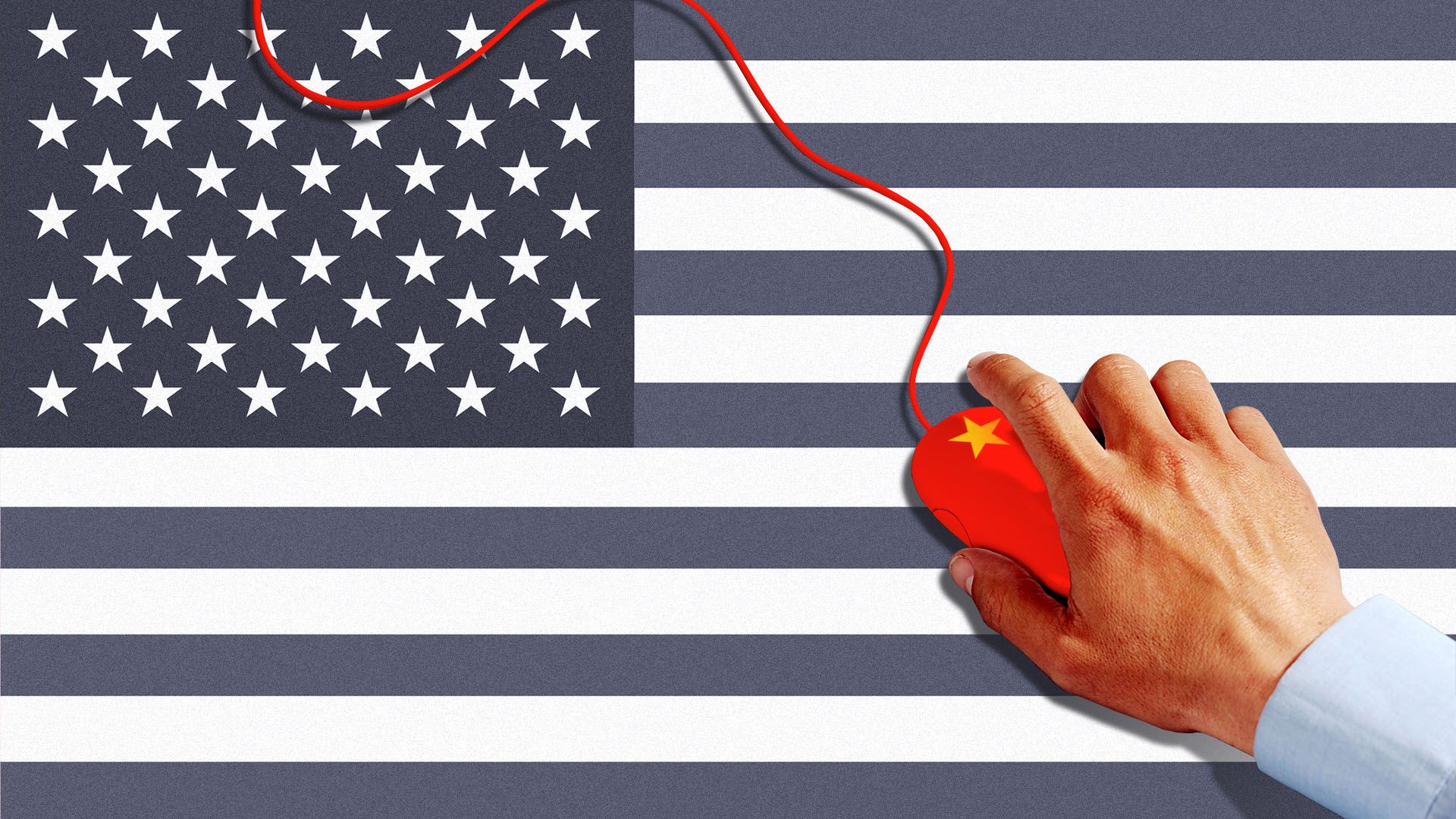The unanswered questions in America's AI strategy
Add Axios as your preferred source to
see more of our stories on Google.

Illustration: Sarah Grillo/Axios
Three years since the White House first publicly considered the U.S. government's role as a shepherd of artificial intelligence research, pivotal unanswered questions are still holding back a coherent strategy for boosting the critical technology at home.
Why it matters: China's authoritarian system, largely untroubled by deliberative holdups, has been pouring money into its AI sector.
The big questions around U.S. AI policy largely revolve around competition with adversaries — which for now, yes, mostly means China:
- How much should Western companies and researchers work with foreign counterparts who may be using AI for domestic repression or in weapons?
- Should some foreign students and scholars be excluded from study or work in the U.S.?
- Should U.S. tech companies develop software for the Pentagon, in the style of China's mandatory civil–military cooperation?
- How autonomous should the U.S. military's future weapons be — given that China is already selling purportedly autonomous machine gun-toting drones abroad?
Driving the news: In a report released Monday, the National Security Commission on AI — a group of experts tasked by Congress with recommending strategies for maintaining national security with AI — tried to arrive at a consensus on thorny issues. But agreement was elusive on these core problems.
"These are all questions where I don't think there are clear answers, and where a lot of the passions and perspectives can become quite polarized," says Elsa Kania, adjunct senior fellow at the Center for a New American Security.
- Even on areas where there is broad agreement, like on the need for immigration policies that attract top technical talent from a abroad, political hurdles remain.
- "I think there's consensus that our system is broken and we may be fatally undermining our critical competitive advantage," says Kania. "And yet the politics and toxicity around this conversation has proved an impediment to progress."
"If you look at what is being said, we continue to hear the right things," says William Carter, deputy director of the technology policy program at the Center for Strategic and International Studies. "But if you look at what is being done, it's not a hell of a lot."
- A focus on bashing China has helped eclipse the drive for policies to bolster the U.S. AI ecosystem with money and clear regulations.
- "Being mean to China is an easy political sell for both parties right now," Carter says.
The big picture: That trend was obvious yesterday at a conference put on by NSCAI, which assembled top Pentagon officials and Silicon Valley dignitaries. China was on every tongue.
- "One of the mistakes we've made so far in the competition with China is framing it as a bilateral competition as opposed to a competition between an authoritarian state that's trying to spread that model and he coalition of likeminded democracies," said Michèle Flournoy, a former undersecretary of defense.
- But it's not the only game in town. "We shouldn't only think about what China is doing," Marjory Blumenthal, senior policy researcher at the RAND Corporation and former tech advisor to President Obama, tells Axios. In the future, smaller countries or non-state actors could cause havoc with increasingly accessible AI.
Go deeper: The danger of over-politicizing AI
